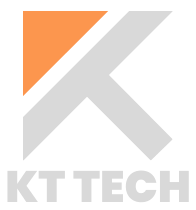 How AI Agents Are Reshaping the Future of Work
How AI Agents Are Reshaping the Future of Work
AI agents are no longer science fiction—they’re redefining workplace norms at breakneck speed. By 2026, 50% of enterprises will deploy AI-driven automation tools, accelerating productivity and transforming collaboration. Let’s explore how these digital collaborators are reshaping industries and unlocking new opportunities.
 What Are AI Agents?
What Are AI Agents?
AI agents are autonomous systems that learn, adapt, and execute tasks with minimal human oversight. Unlike basic chatbots, advanced agents integrate machine learning and natural language processing to handle complex workflows—from medical diagnostics to supply chain optimization.
 3 Key Areas of Workplace Transformation
3 Key Areas of Workplace Transformation
1. Task Automation
- AI handles 45–60% of repetitive tasks in sectors like finance and IT (McKinsey)
- Example: J.P. Morgan’s COiN reviews 12k contracts in seconds—saving 360k human hours
2. Decision-Making Support
- Predictive analytics cuts manufacturing errors by 30%
- Healthcare AI improves diagnostic accuracy by 40% (Nature Medicine)
3. Collaborative Workflows
- AI teammates boost team productivity by 27% (Accenture)
- Microsoft Teams’ AI summarizer reduces meeting follow-ups by 55%
 AI Agents in Action: Industry Spotlights
AI Agents in Action: Industry Spotlights
 Healthcare
Healthcare
- Johns Hopkins’ AI predicts sepsis 6 hours earlier, saving lives
- Robot-assisted surgeries cut recovery time by 25%
 Manufacturing
Manufacturing
- Siemens’ AI agents reduce factory energy use by 15%
- Predictive maintenance decreases downtime by 40%
 Customer Service
Customer Service
- Bank of America’s Erica handles 70M+ client interactions yearly
- Zendesk’s AI resolves 35% of tickets without human intervention
 Traditional vs. AI-Enhanced Workflows
Traditional vs. AI-Enhanced Workflows
| Process | Traditional | AI-Enhanced |
|---|---|---|
| Data Analysis | 2–3 days manual review | Real-time insights |
| Customer Support | 10-minute wait times | Instant AI responses |
| Quality Control | 75% defect detection | 98% AI accuracy |
 Success Stories: AI Implementation Wins
Success Stories: AI Implementation Wins
NHS cut MRI scan analysis time from 13 days to 27 seconds
Walmart’s inventory bots reduced stock discrepancies by 80%
Delta Airlines saved $25M annually via AI-powered baggage handling
 Ethical Considerations
Ethical Considerations
- Bias risks: 35% of HR algorithms show gender/racial bias
- Job displacement: 20M manufacturing roles at risk by 2030 (Oxford Economics)
- Solutions:
- Transparency in AI decision-making
- Upskilling programs for at-risk workers
- Global AI ethics standards
 2024–2030 Predictions
2024–2030 Predictions
2026: 40% of Fortune 500 companies appoint Chief AI Officers
2028: AI-augmented roles outnumber replaced jobs 3:1
2030: 70% of teams include human + AI collaborators
 AI Adoption Checklist for Businesses
AI Adoption Checklist for Businesses
- Audit repetitive tasks for automation potential
- Start with pilot programs (CRM, data analysis)
- Invest in employee AI literacy training
- Implement ethical guidelines for AI use
- Measure outcomes: ROI, productivity, and employee satisfaction
 AI Workforce FAQ
AI Workforce FAQ
Q: Will AI agents eliminate jobs?
A: 85% of roles will evolve rather than disappear (WEF). Focus on skills like AI supervision and strategic thinking.
Q: Are small businesses adopting AI?
A: 62% of SMBs already use AI tools like chatbots and automated invoicing (Salesforce).
Q: What’s the ROI timeframe for AI implementation?
A: Most businesses see ROI within 6–18 months, depending on complexity.
 Conclusion: Partner With Progress
Conclusion: Partner With Progress
The future of work isn’t human vs. machine—it’s human + machine. Companies embracing AI collaboration today will lead in productivity, innovation, and employee satisfaction. Start small, think big, and let AI agents handle the heavy lifting while your team focuses on what humans do best: creating, strategizing, and connecting.



